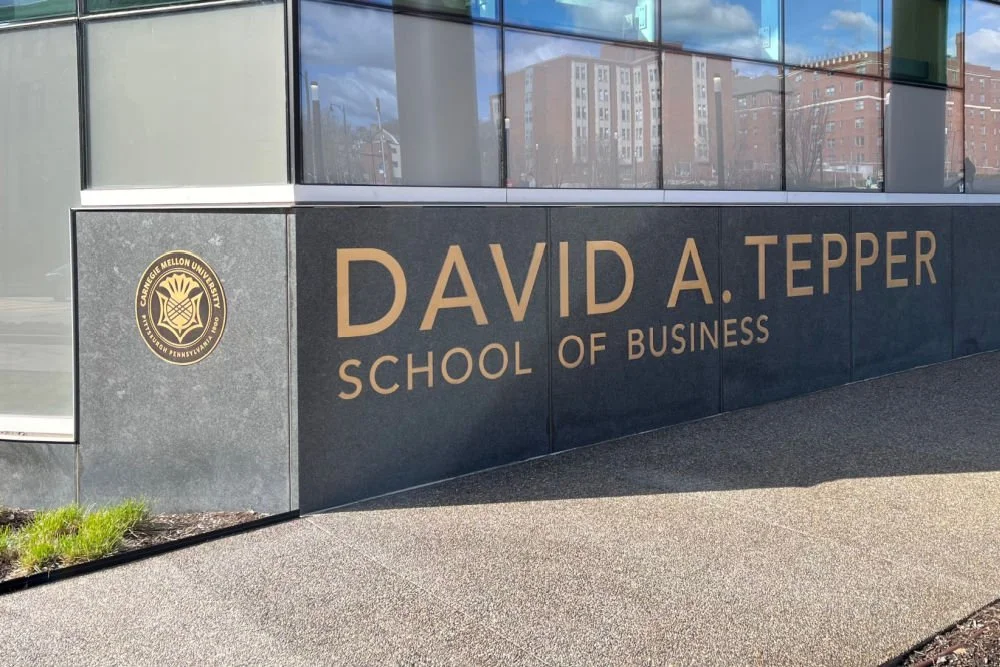After a Long Career in Banking, a Retired Executive Takes a Hands-on Approach to Giving
/The college of Wooster has been among the beneficiaries of Longbrake giving.
Bill Longbrake earned four degrees in total, including his Ph.D. in finance from the University of Maryland. He began his career in Washington, D.C., in the late 1970s, serving in various government positions including acting senior deputy comptroller for policy and senior deputy comptroller for resource management for the Office of the Comptroller of the Currency. He later served as CFO and deputy to the chairman of the FDIC. Away from the public sector, Longbrake had a long career in banking, serving as CFO and vice chair of Washington Mutual.
Longbrake has also engaged the nonprofit space and his Longbrake Family Foundation is celebrating its 20th anniversary this year. Through the foundation, Longbrake has given away in the neighborhood of $400,000 annually of late. In a recent conversation, this low-profile philanthropist had plenty to say about his charity work, and the family foundation he started with his late wife Martha, who passed away in 2014.
The foundation has three focus areas: affordable housing, education and faith-based work. It considers organizations around the country, though the Longbrakes have strong ties to the Seattle area and Pacific Northwest.
Longbrake explains that his interest in affordable housing is driven in part from his half-century career as a banker and bank regulator. He’s currently a director of City First Bank of D.C., a national bank regulated by the comptroller of the currency. The institution has a community development charter that requires it to make at least 60 percent of its loans in low-income census tracts.
“The bank engages in business and real estate development lending primarily in Wards 7 and 8, where average incomes in those areas are substantially below the overall median level in the D.C. area,” Longbrake says. His foundation’s grants for housing over the years have included support for Housing Hope, a nonprofit in Washington State which aims to ensure safe and affordable housing for struggling families.
As a couple, Bill and Martha Longbrake were always passionate advocates for education, and Longbrake continues this legacy. Martha served as PTA member and classroom assistant, and was a board member at Hartwick College, a liberal arts school in New York. Martha was also a passionate advocate for the Presbyterian Church, where she served as an ordained deacon, ordained elder and trustee. Longbrake says the family’s passion for Christian faith-based activities reflects the family legacy.
The Longbrake Family Foundation currently consists of eight board members, including Longbrake, his three sons and one daughter. A great appeal of family foundations to many donors is that they can strengthen bonds among family members, especially across generations and time. Longbrake tells me that all direct descendants of the family are eligible to be board members of the foundation. Direct descendants are elected to 10-year terms, and those who marry into the family can be elected to one-year terms. Grants are generally in the $25,000 to $50,000 range.
One of the organizations the Longbrakes steadily support is Big Table, a 10-year-old startup 501(c)(3) that operates in Spokane and Seattle and is just getting off the ground in San Diego. Seven or eight years ago, Longbrake tells me he ran into Big Table Executive Director Kevin Finch, who “had an incredible idea, but minimal nonprofit experience.” Big Table focuses on assisting people in the food and hospital industry who are going through all kinds of crises.
Longbrake was drawn in particular to Finch’s story. The ordained Presbyterian pastor moonlighted as a restaurant critic for nearly a decade, during which he learned about the many unmet needs in the restaurant and hospitality industry. What’s more, Finch was unable to find anyone else in the country addressing the challenges in a holistic way. Finch stepped out of a position as a pastor to launch Big Table. “The organization has a nice little website that sends out a newsletter which has made a huge difference in the two communities it operates in,” Longbrake explains. The nonprofit actually falls under the Longbrake Family Foundation’s faith-based focus area, suggesting that one way of connecting with this funder is through the faith-based community.
Albany Park Theater Project in Chicago is another organization that the Longbrake Foundation supports. The performing arts outfit describes itself as "a multiethnic youth theater ensemble that inspires people to envision a more just and beautiful world and is dedicated to art, to youth, and a vision of social justice.” Youth from the program have mounted productions at Goodman Theater, a prominent repertory theater in Chicago.
If readers are getting the idea that Longbrake likes to fund and empower the small fishes of the world, this is by design. Longbrake says, “We try to do things where there’s a small amount of money involved, an executive director with very specific vision and passion, but also something that’s pretty much high-risk, and not run of the mill. We’ve had a lot of happy stories, but to be fair, we’ve had a few failures, too, where things don’t work.”
Longbrake has been thrilled with the experience of supporting the Albany Park Theater Project. So much so that several years ago, he encouraged its executive director to better leverage his vision through others. “So often, a nonprofit is one person or a few people doing everything, which limits their ability to expand their reach. This particular organization has had such huge impact on kids. Last year, all the graduating seniors in the program went to college, all got scholarships, and that’s the sort of impact it is having on kids’ lives.”
To that end, the Longbrake Family Foundation gave a challenge grant so that the executive director could “better learn how to be an orchestrator, how to hire people, how to do fundraising. And he has truly made the transformation,” Longbrake says. Most recently, the foundation made a grant to Ohio State University, which is working with the theater to develop curriculum that graduate students will participate in.
Longbrake tells me one final story about Hand in Hand, a social services organization in Everett, Washington, that supports kids who are in child services. During the first 72 hours of their removal from their homes, children can find themselves in limbo, in need of emergency shelter, food, hygiene, medical care and physical and emotional comfort. The Longbrake Family Foundation’s first grant to Hand in Hand helped it build out a bedroom within schools so that children could have a place to sleep and stay. Hand in Hand has since gone on to actually tackle the systemic issues involved. “They’ve had tremendous impact in the state of Washington, and now work with state legislature to change some of the laws around how you handle kids placed in foster families,” Longbrake adds.
Bill Longbrake was also chair of the board of College of Wooster in Ohio, where he graduated in 1965. A few years ago, he contributed $15 million to an approximately $190 million campaign. In June, he will receive an award during alumni weekend for his longtime commitment to his alma mater. He also recently made a $1 million commitment to University of Maryland, which he continues to frequent for research, writing and teaching. He’s also chairman of the board of trustees of Richer Life Foundation, formerly Lift Up Africa, which finances humanitarian and sustainable development initiatives in Africa.
The Longbrake Family Foundation doesn’t have a website and is not keen on unsolicited requests.







































